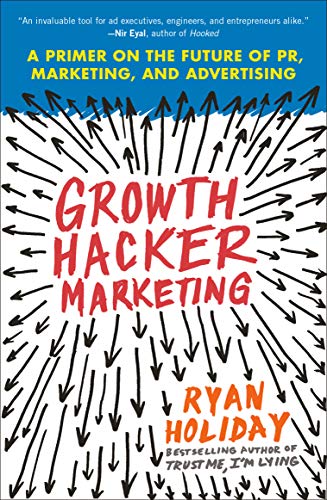Growth Hacker Marketing: A Primer on the Future of PR, Marketing, and Advertising Link to heading
Summary Link to heading
“Growth Hacker Marketing” by Ryan Holiday explores the modern strategies of marketing adopted by tech startups and compares them with traditional marketing methods. Holiday introduces the concept of “growth hacking,” a data-driven approach focused on achieving rapid growth by using innovative, low-cost strategies. The book outlines how these tactics differ from conventional marketing and emphasizes the importance of product-market fit, customer feedback, and iterative product changes in driving growth. It includes case studies of successful companies that have used growth hacking to build their brands.
Review Link to heading
Ryan Holiday’s book provides a clear and concise introduction to the concept of growth hacking, positioning it as a transformative force in the marketing industry. The book is informative for those unfamiliar with the term, as it demystifies the strategies that tech companies use to achieve explosive growth. “Growth Hacker Marketing” is praised for its practical advice and real-world examples that effectively illustrate its points. However, some critics argue that the book lacks depth, particularly for those already familiar with growth hacking concepts, and it might seem overly promotional of tech startups.
Key Takeaways Link to heading
- Growth Hacking Philosophy: Emphasizes agility, innovation, and frugality in marketing efforts.
- Product-Market Fit: Achieving a good product-market fit is crucial before scaling marketing efforts.
- Customer Feedback: Active listening to users’ feedback is critical in improving the product iteratively.
- Viral and Organic Growth: Focuses on creating opportunities for organic growth, including viral loops within the product.
- Data-Driven Decisions: Emphasizes using analytics and metrics to guide marketing strategies.
Recommendation Link to heading
This book is particularly useful for startup founders, marketers, and entrepreneurs, especially those in the tech industry, who are looking to understand new marketing paradigms. It’s also beneficial for traditional marketers interested in incorporating innovative growth tactics into their strategies. Conversely, readers already well-versed in growth hacking might find it too simplistic.
